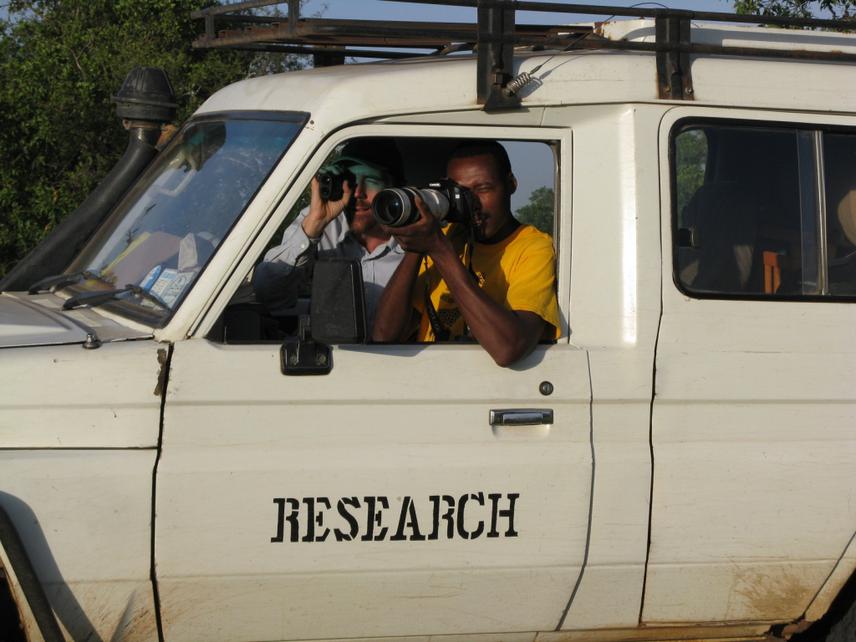Social media video featuring the project.
The Lost Migration (below)
Wild Nature Institute Sinema Leo - Movies Today: Children's Video Story Books
Hoofed Mammals in a Fragmented Landscape: Science, Education, and Advocacy for Community Conservation of Tropical Ungulates
Our project is an integrated research, education, and advocacy campaign to conserve the threatened wildlife of the Tarangire Ecosystem of northern Tanzania. We are conducting ongoing landscape-level wildlife research for 20 species of ungulate (hoofed mammals) to ensure reliable data are available for management, planning, and conservation. We are also educating decision makers about community conservation, and advocating for creation of a new Wildlife Management Area.

Collecting data on distribution and abundance of hoofed mammals using distance sampling.
Our project is an integrated research, education, and advocacy campaign to conserve the threatened wildlife of the Tarangire Ecosystem of northern Tanzania. We are conducting ongoing landscape-level wildlife research for 20 species of ungulate (hoofed mammals) to ensure reliable data are available for management, planning, and conservation. We are also educating decision makers about community conservation, and advocating for creation of a new Wildlife Management Area.
Our current work is documenting the ungulate responses to 2 recently established WMAs near Tarangire National Park to serve as evidence whether these areas are working for wildlife conservation. Existing WMAs generate village payments on the order of tens of thousands of dollars per year, but those monies have sparked political battles over management of funds in WMAs. In the face of political difficulties encountered in managing existing WMAs with their many stakeholders, our data will indicate whether or not WMAs do indeed work for wildlife conservation. Our results will educate decision makers about the short-term conservation outcome of WMAs.
If we are successful, the local villages could preserve one of the last great migrations in the world. The WMA will shift wildlife resource ownership, control, and profit from the national government to the local villages, who currently see little to no benefit from wildlife-based tourism in the region. The WMA legal structures codify a regional land-use plan that protects wildlife habitat in perpetuity with an enduring legal framework. Conserving wildlife resources will create long-term benefits to local Masai communities through grassroots ecotourism developments in one of the most eco-touristic regions of the world. However, if our data indicate WMAs are unsuccessful in protecting ungulates, perhaps alternatives for community conservation should be sought and pursued.
Social media video featuring the project.
The Lost Migration (below)
Wild Nature Institute Sinema Leo - Movies Today: Children's Video Story Books
Article featuring the project.
Anthropogenic and climatic drivers of population densities in an African savanna ungulate community